Performers' observations on social issues, family, modern life connect with younger audiences
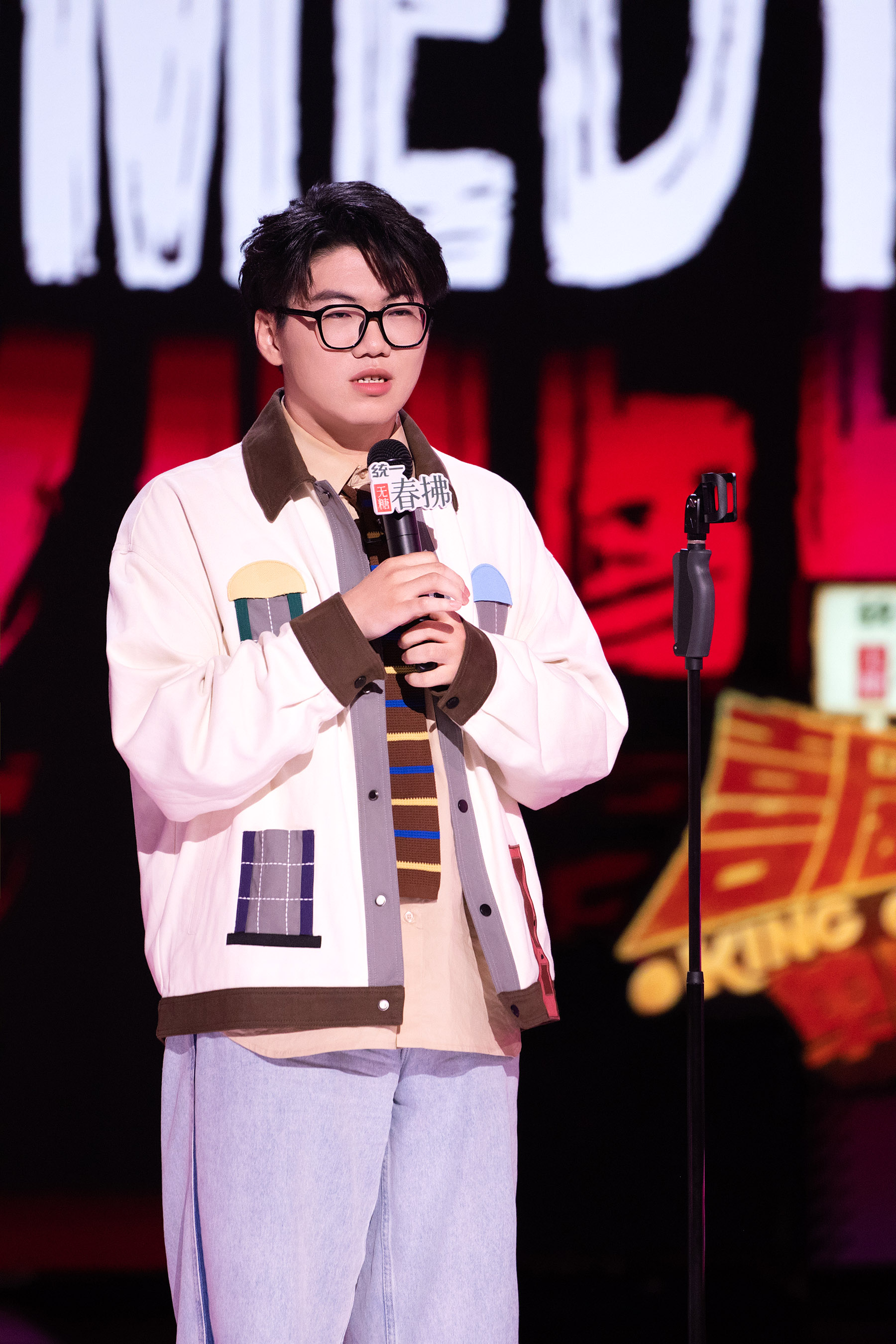
On a cold winter night, Tang Xiangyu was cycling through the streets of Beijing, heading home after work. The winter chill had numbed her fingers, but her mind raced with ideas for new jokes. She couldn't ignore the sudden burst of inspiration.
Despite the freezing temperatures, she stopped pedaling and pulled over. Her frozen hands struggled to take notes on her phone, but she was determined not to let the moment slip away.
That spark of creativity in the middle of the frigid night was a turning point.
At that moment, Tang realized comedy wasn't just something she was doing for fun. Her desire to make people laugh was so strong that she would put up with freezing hands just to capture a flicker of inspiration.
READ MORE: Chinese youth pursues diversity through multiple careers, identities
Nearly four years later, she is one of the most popular stand-up comedians in China, touring the country and appearing in popular internet comedy shows.
Stand-up comedy is gaining traction across China, a country where this particular art form is still relatively new.
Major platforms, such as iQIYI and Tencent Video, have helped comedians like Tang bring their craft to millions, reaching a far wider audience than anyone had previously imagined.
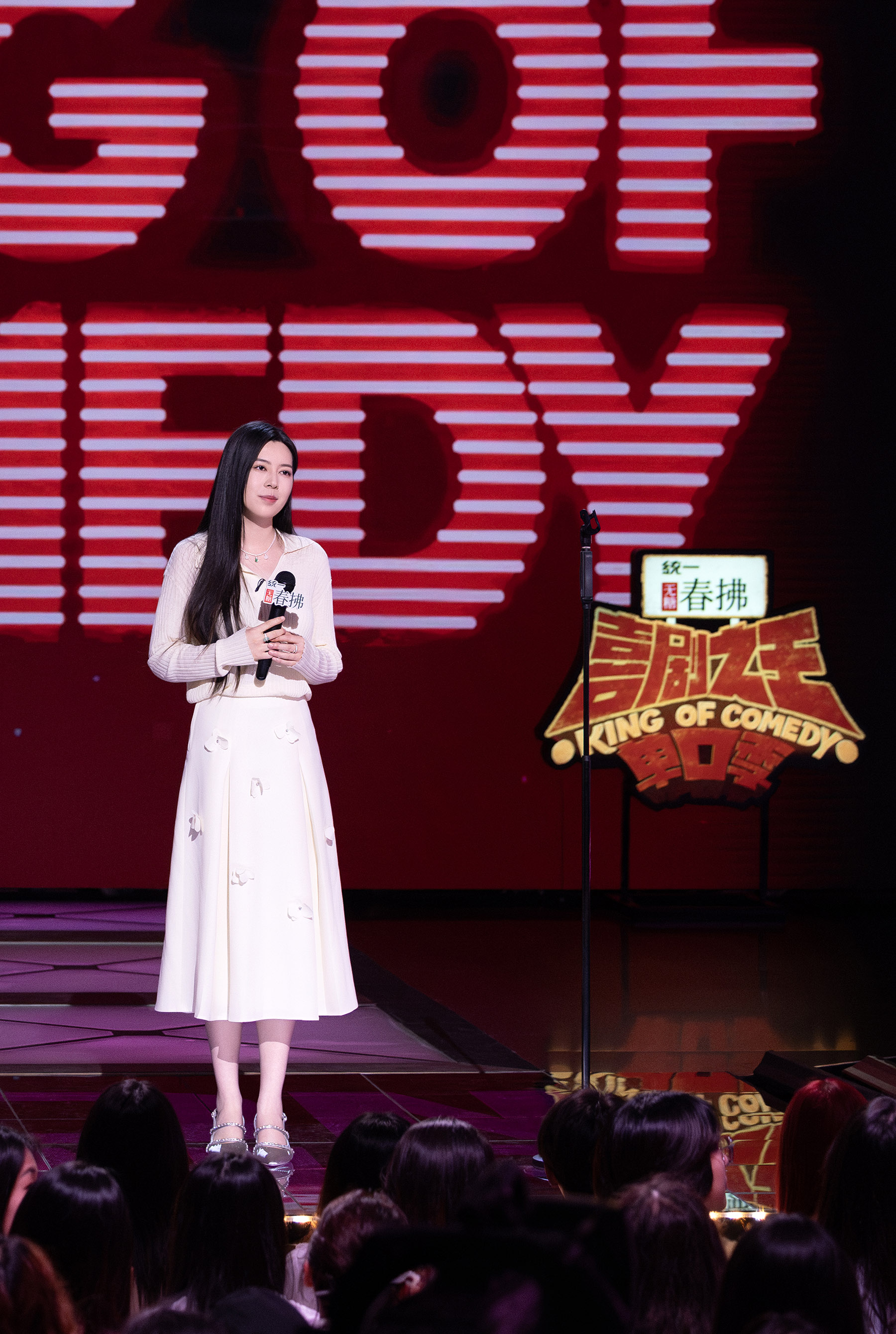
Express yourself
As China's younger generation embraces diverse global entertainment forms, comedy has become a vehicle for expressing individuality, challenging social norms, and poking fun at the pressure of modern life.
"I remember the first time I got on stage and saw people in the crowd laughing," 31-year-old Tang recalled. "It wasn't just about the jokes anymore. It was about us, together, laughing at the things and experiences we have shared but never spoke about."
Tang, who was born and raised in a rural area of Shandong province, graduated from a top Chinese university. She wrote articles for an online education platform, and was later promoted to manage online educational products.
"I've always enjoyed creating and writing," Tang said. "I knew I had the ability to tell jokes and make my colleagues laugh. Even when I wrote stories about education, they always had a dash of humor."
She had no idea what stand-up comedy was about until she attended a show in Beijing with friends.
"What fascinated me was how performers could share funny yet insightful observations about the world without being offensive. It seemed like you could speak honestly, blending humor with social commentary, and make people laugh," Tang said. "That was the job I was dreaming about."
On Dec 6, 2021, Tang made her debut as a stand-up comedian. The audience laughed along and she sensed a genuine connection with them. Her first taste of performing and being accepted was exhilarating.
As she performed more open mics, however, she realized stand-up wasn't just about making people laugh — it was about sharing honest, personal stories. Her material began to explore societal pressures, the expectations placed on women, and the family dynamics she had always wanted to talk about.
Her family didn't understand her desire to leave a stable career for something so uncertain. But for Tang, something inside her had changed — she was ready to take the leap.
"It's an art form that allows you to speak your truth," she said. "The audience can tell when something is fake, and when it's real, they respond."
As her career progressed, many fans began sharing their personal stories with her, sometimes treating her like a confidant. "It's the ultimate honor when someone tells me they trust me with their story," she said. "It makes me realize that stand-up can create a space where people feel safe enough to be themselves."
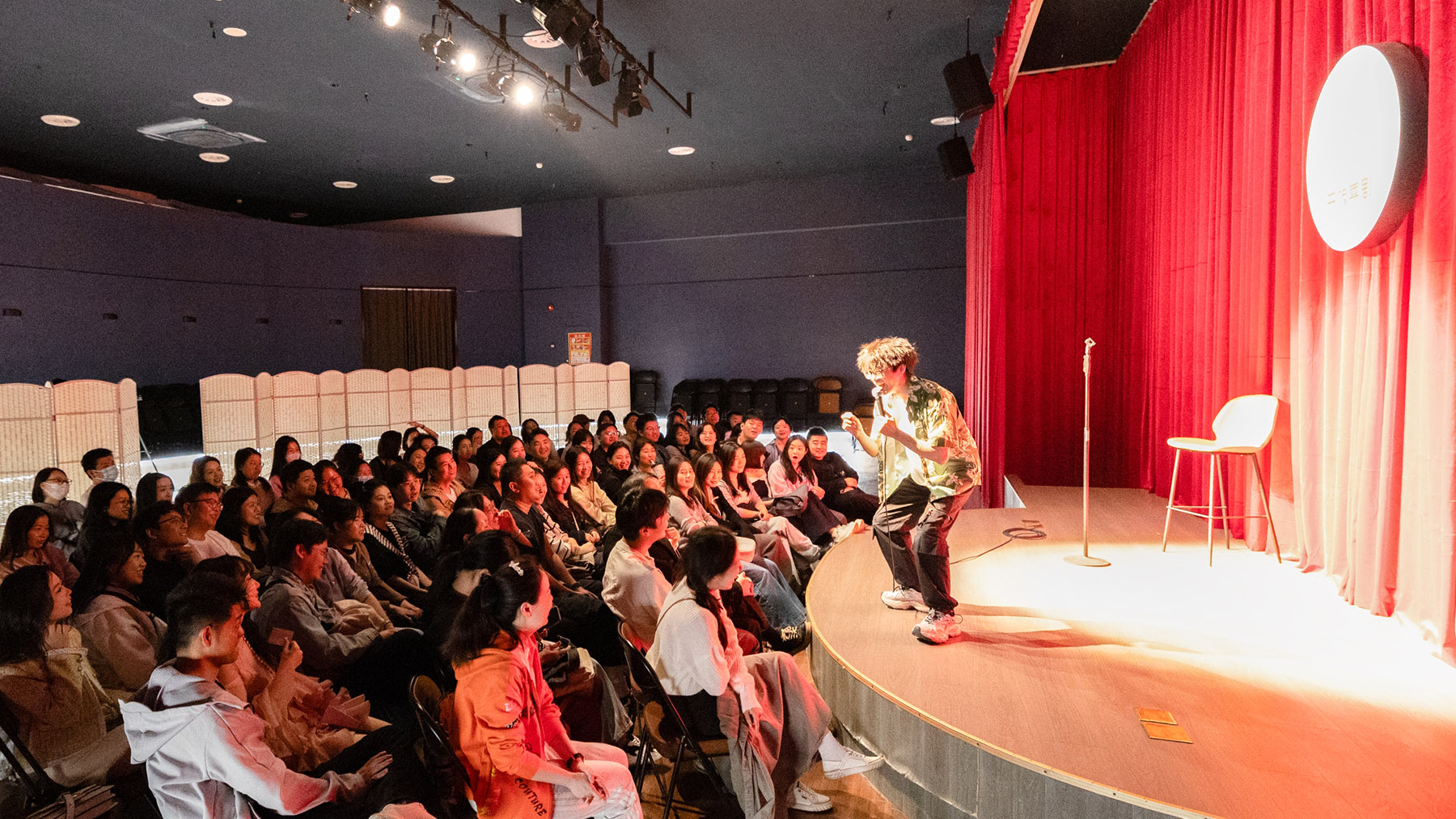
Brave enough to try
Comedy also takes topics once hidden in the shadows into the open and sparking public conversations.
Fang Zhuren is a housewife who quietly endured an abusive marriage for 30 years before walking away and rebuilding her life through comedy. She infuses her performances with biting black humor and a distinct personal voice.
"Domestic violence is such a heavy topic. Only someone who lived through it could make you laugh and ache at the same time. That's Fang Zhuren's gift — she makes the unbearable speakable," commented one of her fans on social media.
Xi Ha, a former national-level athlete who later became a flight attendant, now uses her comedy to critique unrealistic beauty standards and public expectations. With sharp wit, she jokes about uncomfortable uniforms — short skirts, stockings, and high heels — and air passengers' unreasonable demands.
"She's not just funny, she's fearless. She'll talk about beauty standards, the workplace revolution, and passengers' sense of entitlement — all while wearing heels and making you choke on your drink," wrote a fan.
Xi said she chose to talk about these things because she thought they were funny. "I chose comedy because they (the subjects) really are funny, in a dark way," said Xi, who logged over 10,000 hours as a flight attendant, and participated in special aid missions like post-earthquake relief in Kathmandu, Nepal.
"I don't think there's anything particularly special about what I do. I don't call it a 'female perspective'. What I observe isn't about gender — it's about society," she said, adding that it's not just the stereotype of flight attendants she wants to challenge.
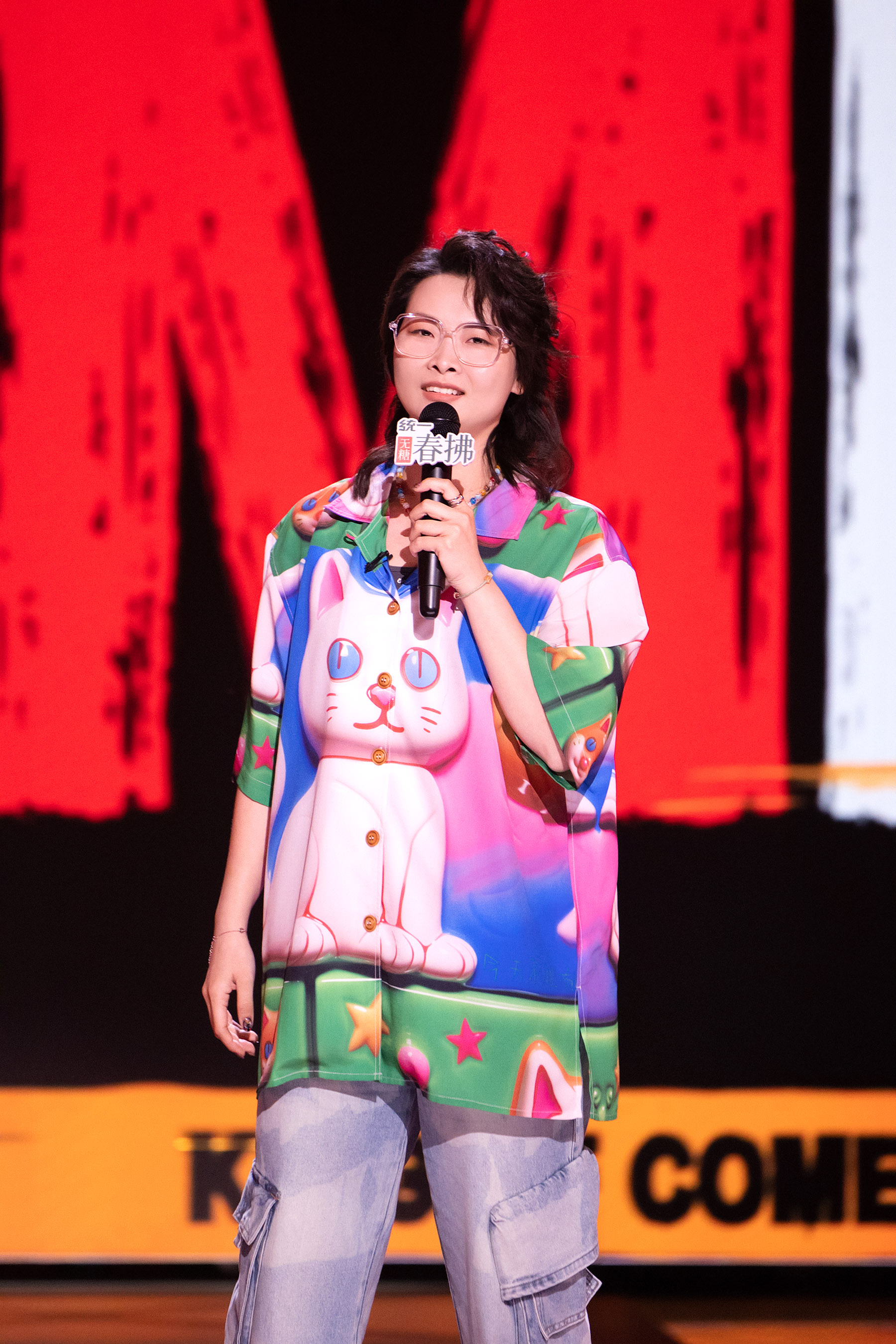
At 21, Xie Xie is one of the youngest rising comedy stars. He gained a loyal fan base after appearing on the second season of The King of Stand-up Comedy, which premiered on July 11 on iQIYI.
His material about high school life — including strict rules, stern teachers, and awkward moments — instantly struck a chord.
"I was overwhelmed by the audience response. After the show, I got more chances to perform not just in Beijing, but in cities across the country. It felt like a dream," said Xie, a second-year journalism student at Peking University, where he also heads the campus stand-up comedy club.
The routine, written a year ago, won him first prize in a stand-up comedy competition.
Xie was first introduced to comedy watching the 2012 TV program Tonight 80's Talk Show, which focused on the lives of young Chinese people. Later, he watched stand-up shows online, which inspired him to try performing himself.
"Stand-up isn't just a performance, it becomes a way of life. The more you do it, the more your thinking changes. When something bad happens, my first thought is: 'Can I turn this into a joke?' That mindset helps me stay positive."
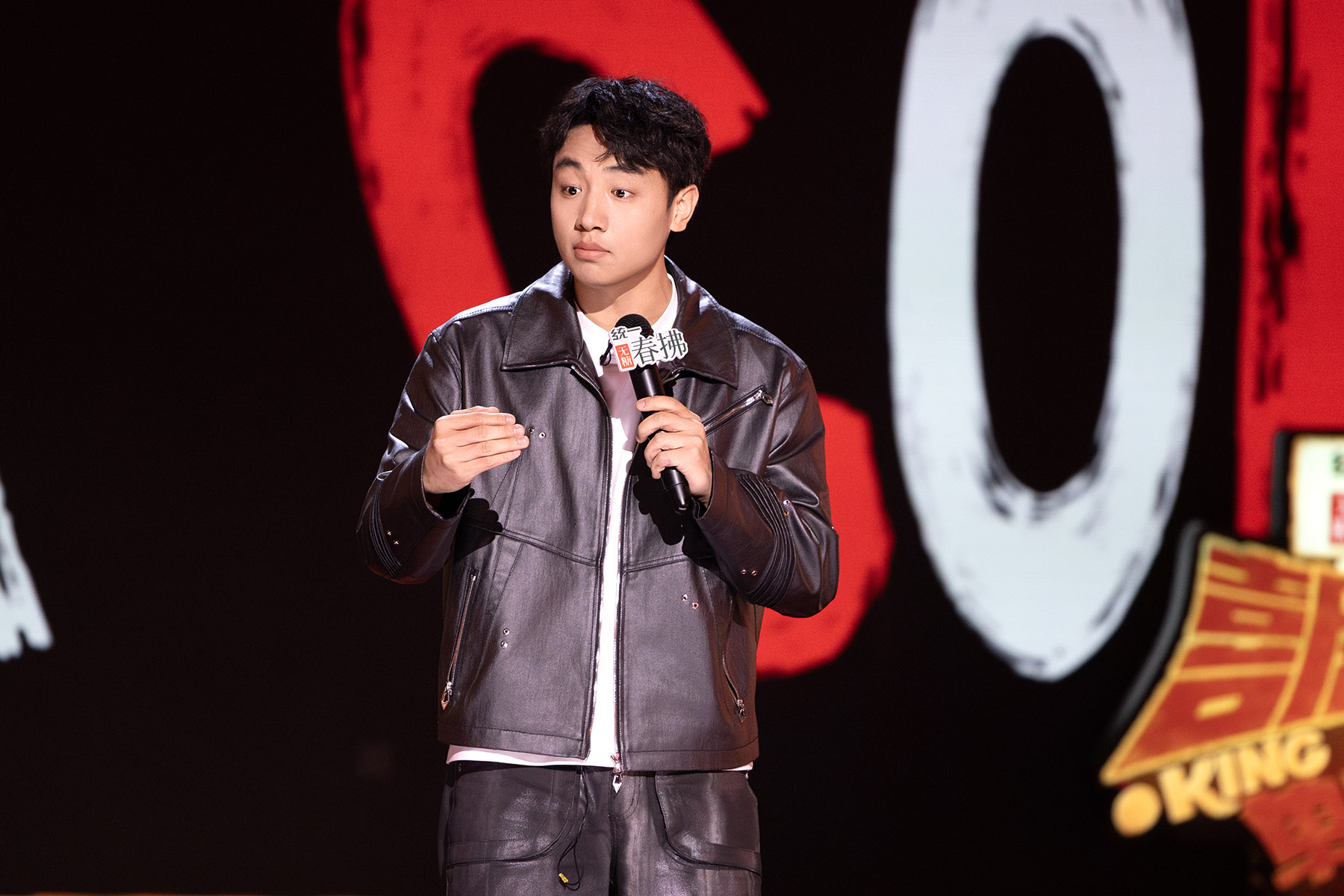
Social observation
Wang Xinbo, 32, also made his debut on the second season of The King of Stand-up Comedy, which helped him reach a wider audience.
With a degree in applied mathematics and a job in cybersecurity sales, the performer, who goes by the stage name Xinbo, tried stand-up for the first time at an open mic in Shenzhen, Guangdong province, in 2022. Motivated by online and live shows — and the stress of his sales job — he wasn't looking for fame, just to release.
"My first set was about the stereotypes my family had about sales jobs," he said. "It didn't go as well as I'd hoped. I realized quickly that this is harder than it looks."
That humbling experience didn't stop him. Two and a half years later, Xinbo launched his first stand-up special. His understanding of comedy had transformed.
"I used to think comedy was just about being funny. But it's a structured, logical system. Humor has its own internal logic," he said.
"The most important thing is having a clear premise. Without that, no technique can save a joke. Creating punchlines depends on talent — but raising your hit rate takes constant practice."
His material evolved from personal reflection to sharp social observation. His style today is known for its narrative voice and observational insight.
"I mix storytelling with commentary," he said. "It gives the material more emotional weight."
By 2023, Xinbo was performing regularly, and by May 2025, he was a full-time stand-up comedian.
He believes comedy is everywhere, if you're paying attention.
He once noticed shared bikes had cooling seat pads in summer. "But only the seat! As if your butt is the only thing that gets hot in July!" That absurd detail became a punchline.
He has since performed across China, from big cities like Beijing and Shanghai to second-tier towns.
Wang Jianguo, a veteran stand-up comedian and scriptwriter for The King of Stand-up Comedy, said the audience response since the show started has been overwhelming.
"If we can spark even a flicker of shared reflection on something people are confronting or avoiding, then that's enough. That's the joy," he said.
Wang said comedy is more than a joke; it's a lens and a mirror of society that acts as a pressure valve.
"We all wake up and put on armor to face the world," he said. "It protects us, but it's uncomfortable. Sometimes we want to take it off and breathe — but even that can be hard. We may not be able to take it off for you — but maybe, just maybe, we can help soften it a little."
Today's Chinese audiences are increasingly discerning. They want more than punchlines and slapstick. This growing demand has pushed comedians toward deeper storytelling and honest portrayals of personal and social dilemmas.
"If we can help people feel a little less alone, a little more understood through laughter — then we've done our job," Wang said.
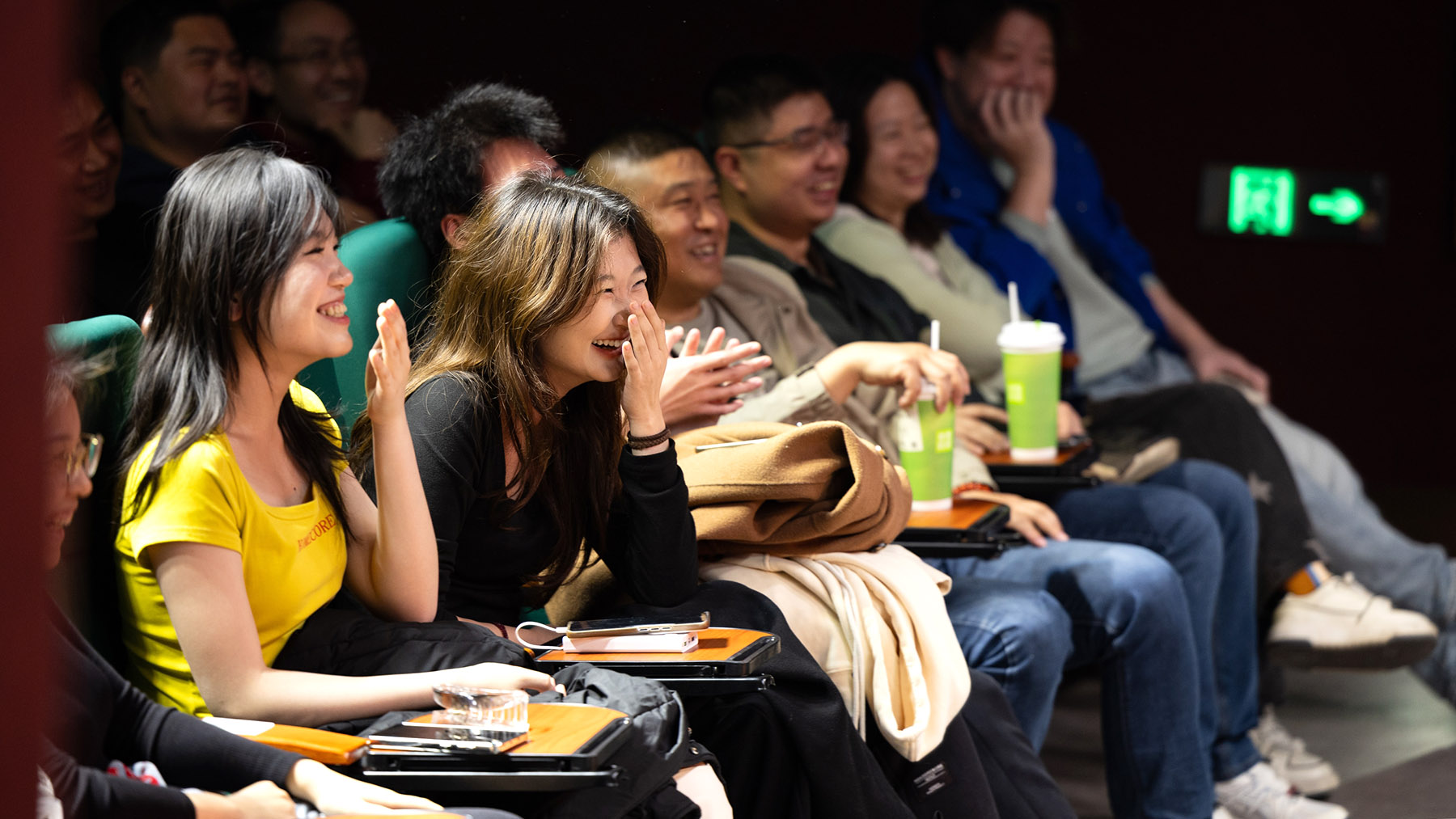
Packed venues
In 2024, among performances in smaller theaters, stand-up comedy saw the largest increases in both the number of performances and box office revenue, rising by 53 percent and 48 percent, respectively, according to a report by China Association of Performing Arts.
In Shanghai, the number of stand-up comedy performances soared to 15,000 in 2024, a report released in May by major online ticket selling platform Damai found.
Across the country in first-tier cities like Beijing, and Guangdong's Guangzhou and Shenzhen, as well as in emerging first-tier cities such as Hangzhou in Zhejiang province, Nanjing in Jiangsu province, and Xi'an in Shaanxi province, stand-up comedy shows in small theaters have been springing up. The number of performances continues to rise, and the audience base is steadily expanding, industry figures said.
ALSO READ: Comedy camp is no laughing matter
"People gathering together to joke with each other, turning both happy and unhappy moments into laughter, has become a common part of modern life," said Yin Hong, a professor at Tsinghua University's School of Journalism and Communication.
"This is one of the key reasons why stand-up comedy shows have gained popularity in recent years," he said.
"Unlike in the past, Chinese people now have more space and confidence, embracing humor that is kind, sarcastic, and playful. This shift is especially evident among the younger generation," he added.
The professor said another reason for the surge in popularity of stand-up comedy shows is their focus on the lives of young people. Some of the current popular programs have not only featured professional comedians but also people from various fields, making the content more relatable, Yin said. They have "localized" the comedy themes, closely aligning them with relatable real-life topics and addressing social issues.
Contact the writer at chennan@chinadaily.com.cn


